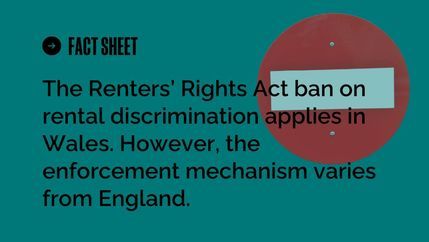
Hall is still fighting to regain formal ownership of the house and is “in despair” as he continues to battle The Land Registry for compensation.
In August 2021, Hall was working in North Wales and received a call from his neighbours alerting him that someone was in the house. He immediately drove to the property to find that his key no longer worked and it had been stripped of its contents.
After gaining access, he calmly confronted the new owner’s father and was told that the house had been sold. The Land Registry confirmed that Hall was no longer the legal owner.
More cases uncovered
The BBC reported that many more cases had since been uncovered, including that of Angus Penfound, who, in 2018, purchased a property in Southampton for £180,000 and renovated it at some considerable cost. He then took on new work in Cornwall and let out the house via a well-known local letting agent.
The new tenant provided a deposit, paid the rent and council tax – but they didn’t move in. Penfound has since discovered that a criminal using the fake name of ‘Stephen Jones’ took up residency and sold the property for £190,000.
Penfound only discovered that there were people in his house when alerted by the council and has since raised a claim with The Land Registry for compensation.
Identification fraud
In both cases, the criminals involved stole the owners’ identification. In the case of Penfound, they fabricated his driving license via the DVLA and replaced the photo. Once they had the ID, they could access utility bills and set up bank accounts.
Fraudulent paperwork was used as ‘proof of ID’ when appointing solicitors to sell both properties. Hall has since discovered that he was registered as a director of a fake company.
Updating the law
When the BBC approached The Land Registry, they said that it is more likely to award compensation than give the property back to its original owner, according to the Land Registry Act 2002.
Penfound’s MP, Caroline Nokes, called the UK Government to update the law to reflect the real threat of 21st-century property fraud.
Three changes have been asked for:
- The Land Registry to move swiftly to resolve these cases (without tribunal)
- The law to be updated to protect homeowners
- Homeowners to have recourse to reclaim their properties
In response, Penny Mordaunt MP promised to support her call and write to the Secretary of State. Propertymark will keep members updated on any changes to legislation.
Protecting properties
Empty, rented or properties without a mortgage are most at risk. Thankfully, there are some simple steps agents can explain to homeowners so their properties are protected. Crucially, homeowners must ensure that their contact details are where they live – not the empty or rented property.
If homeowners don’t have a mortgage and don’t live in the property, they can take out a restriction on the property via the Land Registry, which is free. This means that no one can do anything to the property without the owner’s express consent.





